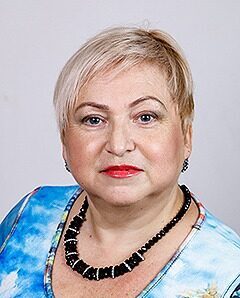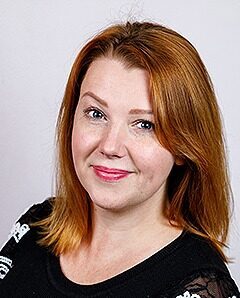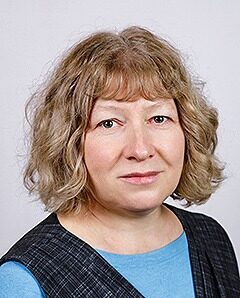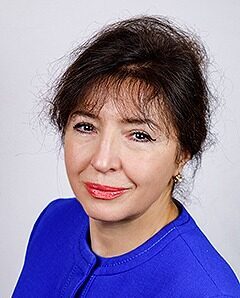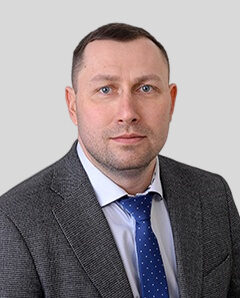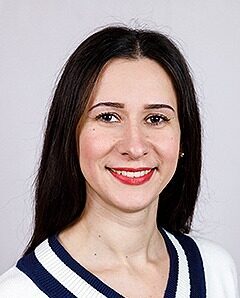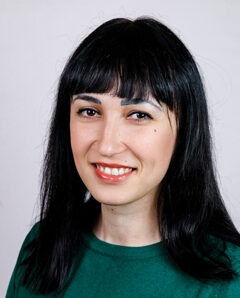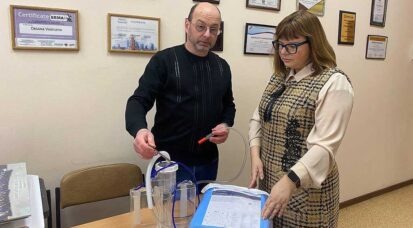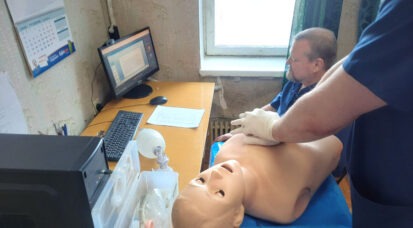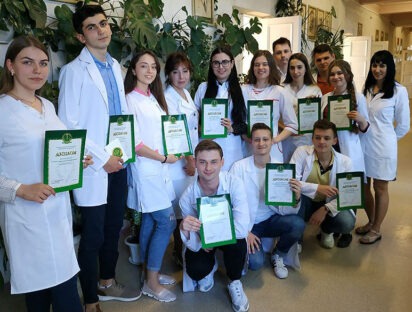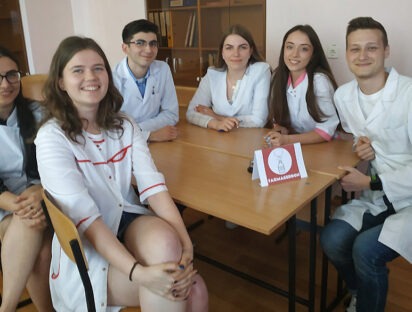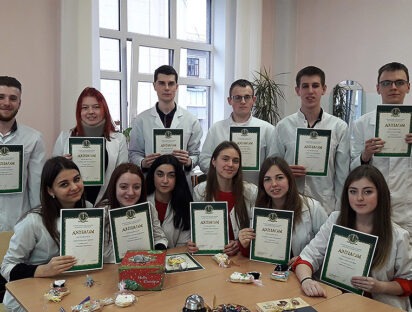About us
The department was created in 1805 as part of the medical faculty of the Kharkov Imperial University. The main activities of the department include educational, scientific and methodical work.
Disciplines taught at the department: “Pharmacology” for students of the 3rd year of all medical faculties, 2 and 3 courses of the dental faculty; “Pharmacology and medical prescription” for undergraduate students of the 1st year in the specialty “Medical diagnosis and treatment technology”; “Medical and pharmaceutical commodity” for undergraduate students and masters in the specialty “Medical nursing”.
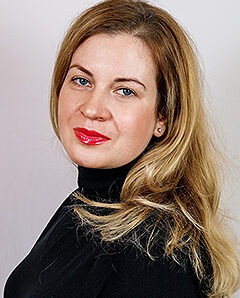
- Hystory of the department
- Department today
- Educational process
- Scientific work
- International activities
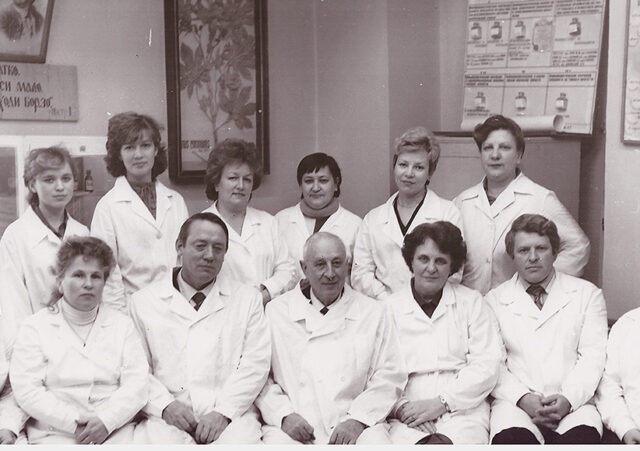
The department was established in 1805 as a part of the medical faculty of the Imperial Kharkiv University and at that time was called “Department of Medicinal Substance, Pharmacy and Medical Literature”. Since the establishment of the department, its activities have been continuously improved, experience has been accumulated, traditions have been formed. The history of the department is connected with the names of prominent scientists who headed it in different years, namely: S.O. Popov (1895–1912), Ya.Ya. Postoev (1912–1929), O.I. Сherkes (1930–1944), M.S. Kharchenko (1944–1985), L.T. Kirichok (1985–2002), T.V. Zvyagintseva (2002–2014), who made a significant contribution to its modern development. During the tenure of Professor M.S. Kharchenko created a number of drugs, such as allylchep, allylglycerol, hypocholesterol, which are included in official directories. The department has created and equipped a training pharmacy, a museum of plant exhibits used in traditional and folk medicine, and chemical substances. The staff of the department under the leadership of Professor L.T. Kyrychok conducted preclinical studies of new drugs, drugs in new dosage forms: strachichol, nitroglycerin in the form of aerosols and ointments, amizil for adaptogenic action, etaperazine-prolong for injection.
In total, over 100 Ph.D. and 25 M.D. have been trained at the department over its long history.
The scientific direction of the department was and remains the search for ways of pharmacological correction of adverse effects of emotional stress and the study of anti-stress effects of drugs that affect the body’s defenses against emotionally negative factors. The search for remedies with reparative activity continues. Among the priority areas of scientific work of the department are the study of drugs with nephroprotective action, search and study of pharmacological activity of biologically active compounds of natural origin.
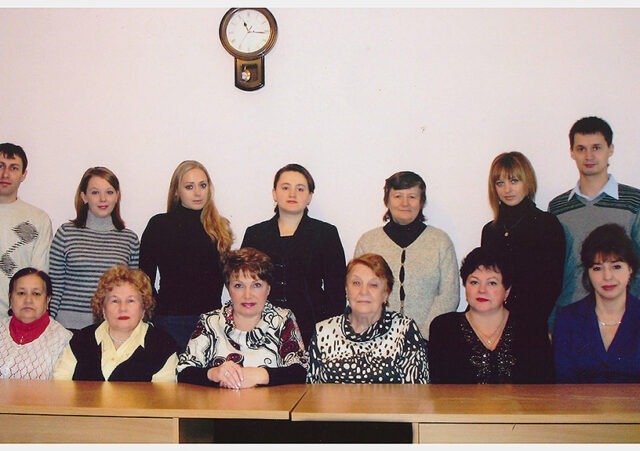
Scientific and pedagogical staff of the Department of Pharmacology and Medical Prescription are engaged in educational, methodical and scientific work. The main discipline “Pharmacology” is taught at the department for students of all specialties. Employees of the department are constantly improving their level of professionalism, take refresher courses, including international; attend trainings and webinars; conduct intra-departmental methodical seminars.
The scientific direction of the department includes the study of nephroprotective properties of drugs of specific and nonspecific action in renal pathology. Innovative approaches to the creation of combined drugs for the treatment of bronchopulmonary pathology in children of different ages at the preclinical stage. Pharmacological study of potential drugs containing biologically active substances of natural origin. Students attending scientific events of different levels take an active part in the scientific work of the department.
All employees of the department are members of the International Union of Fundamental and Clinical Pharmacology “IUPHAR” (Swiss Confederation) since 2006. They regularly participate in international events, such as scientific and practical conferences and foreign internships.
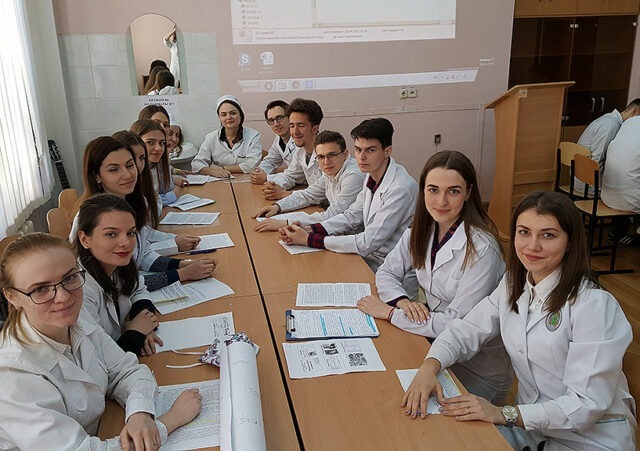
The department trains students in educational and professional programs (EPP):
II Master degree “Medicine”, “Pediatrics”, “Dentistry”, “Nursing” – the educational components are “Pharmacology” (the main component for EPP “Medicine”, “Pediatrics” and “Dentistry”), “Homeopathy” (optional component which is studied for EPP “Dentistry”) and “Pharmacoeconomics” (optional component for EPP “Nursing”);
I bachelor’s level “Nursing”, “Laboratory Diagnostics” – the educational components are “Medical and Pharmaceutical Commodity Science” (the main component of EPP “Nursing”) and “Pharmacology and Medical Prescription” (the main component of EPP “Laboratory Diagnostics”).
In the preparation of students at the department are widely used modern teaching methods: verbal (lecture, conversation), visual (illustration, presentation), practical (independent work, work in pairs, group work), distance learning (webinar, interactive testing).
The department teaches elective courses, namely “Homeopathy” for students of the II Master degree who study in EPP “Dentistry” and “Pharmacoeconomics” for students of the II Master degree who study in EPP “Nursing”.
Employees of the department are co-authors of the national textbook in pharmacology edited by I.S. Chekman (3rd ed., 2016; 4th ed., 2017).
The department has created 3 manuals in such disciplines as “Homeopathy” and “Medical and Pharmaceutical Commodity Science”, also published a manual “Medical Prescription” (2nd ed., 2017).
The staff of the department issued 12 guidelines for independent work of students (in Ukrainian), 11 of which in the discipline “Pharmacology” and 1 in the discipline “Medical and Pharmaceutical Commodity Science”. Also for the discipline “Pharmacology” were prepared 11 guidelines for independent work of students and created 7 guidelines for teachers in English.
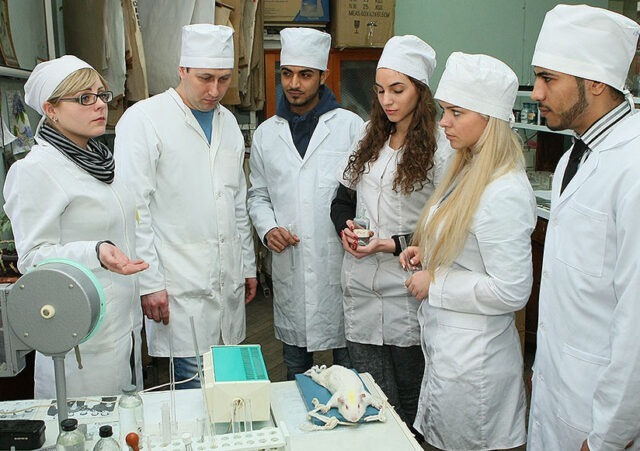
Employees of the department conduct research in the following areas:
– pharmacological study of biologically active substances of synthetic and natural origin in order to develop drugs based on them;
– pharmacological study of the therapeutic action of potential drugs for the treatment of kidney disease;
– pharmacological study of the therapeutic action of potential drugs for the treatment of skin diseases;
– pharmacological study of the therapeutic action of potential drugs for the treatment of diseases of the gastrointestinal tract;
– pharmacological study of the therapeutic action of potential drugs for the treatment of diseases accompanied by inflammatory and pain syndrome.
Initiative research work of the department:
– Experimental substantiation of nephroprotective properties of drugs of specific and nonspecific action in renal pathology
– Pharmacological study of potential drugs containing biologically active substances of natural origin
According to the results of scientific research, 1 MD and 7 Ph.D were defended.
According to the results of research work of the department created scientific products:
– 21 patents;
– 10 innovations included in the state register;
– 8 information letters;
– 6 monographs;
– about 90 articles (9 of which were published in SCOPUS journals);
– 260 theses;
– more than 110 reports and participation in 100 scientific forums.
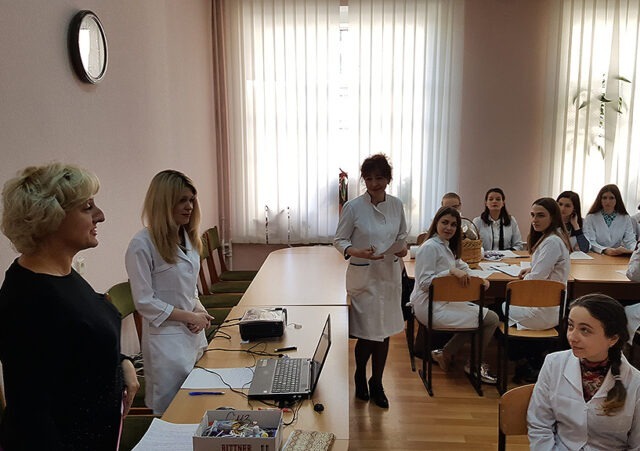
All employees of the department are members of the International Union of Fundamental and Clinical Pharmacology “IUPHAR” (Swiss Confederation) since 2006. They regularly participate in international events, such as scientific and practical conferences and foreign internships remotely.
In charge of the student scientific society: Candidate of Pharmaceutical Sciences, assistant Chorna Nataliia Stepanivna.
Members of the student scientific society: 3rd year students of medical faculties and 2nd-3rd year students of the dental faculty. The composition is updated annually.
Format: once a month meeting in online format (Microsoft Teams, Google Meet) or in person at the department.
Form of work: preparation of reviews of scientific literature, presentations, as well as independent research work, including experiment.
The work of students is organized in several stages. At the beginning, students perform analytical teaching and research work within the problem, based on the results of which they prepare a review report. The next step involves performing an experimental study. Students study the methods of analysis and statistical processing of the results of a scientific experiment, present the data in the form of a report or scientific publication.

